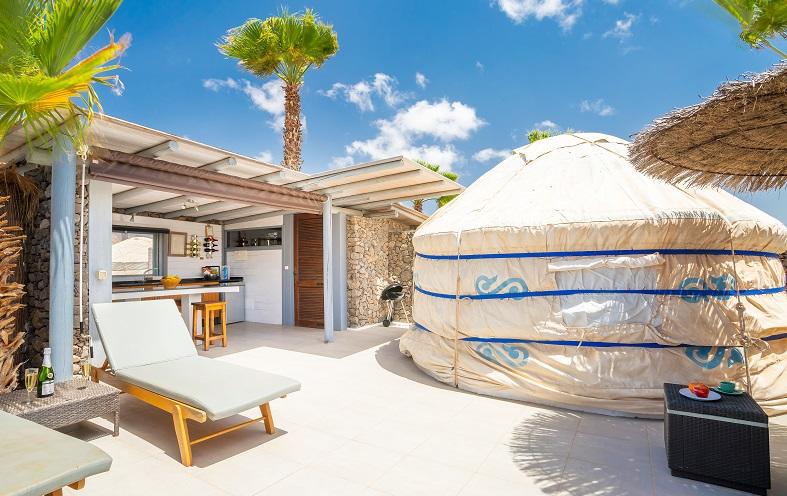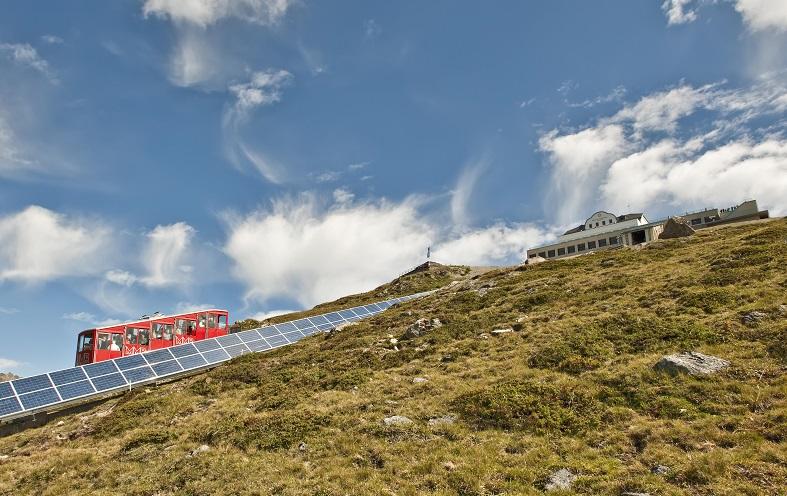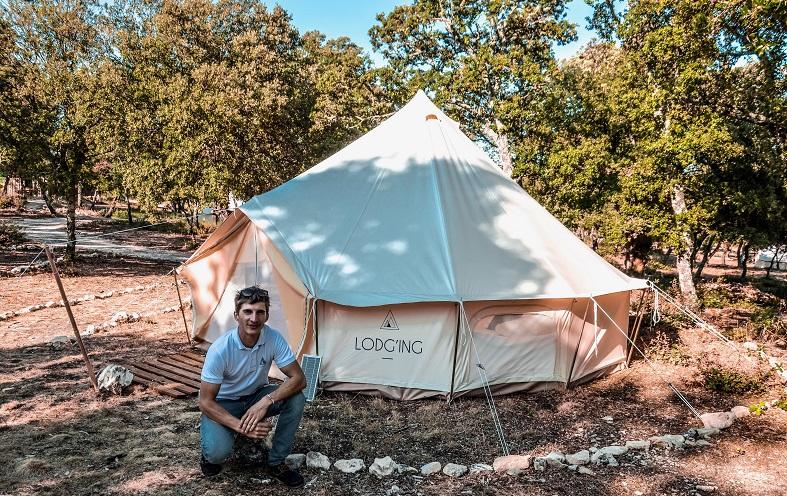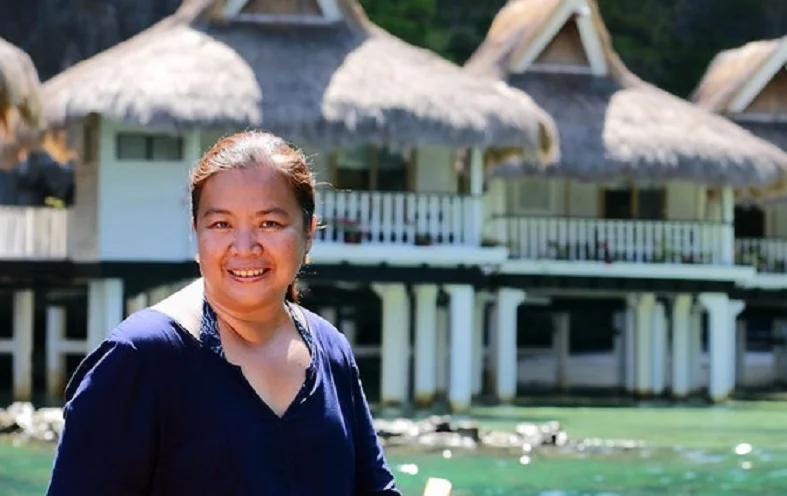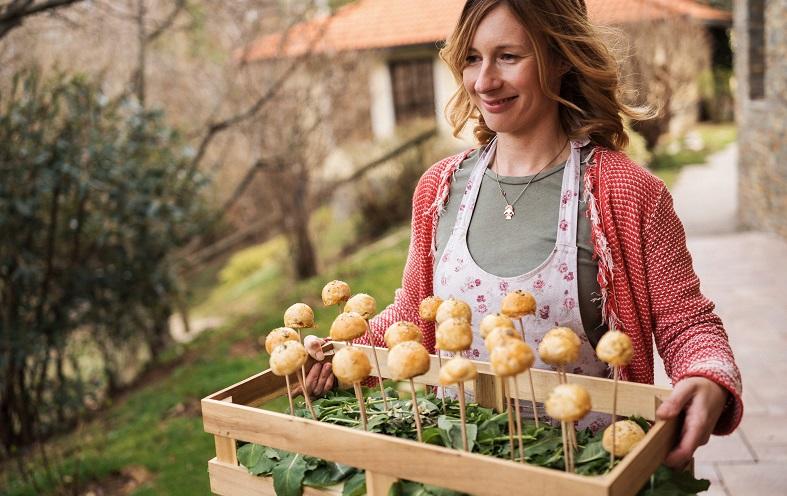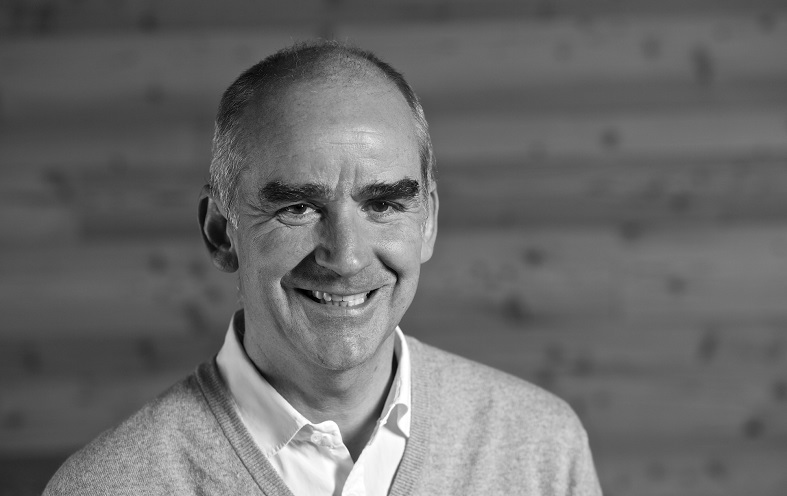
Antonia del Toro, Director of Corporate Social Responsibility at Grupo Piñero, in this interview shares her experience of developing and implementing sustainability projects for Bahia Principe Hotels & Resorts. She also reflects on the benefits of sustainable tourism certification, and how Grupo Piñero measures and monitors the success of its social responsibility and sustainability initiatives.
Learn about:
- Antonia’s main challenges as Director of CSR;
- The strategies implemented to engage with local communities;
- The strategies used to support conservation, cultural heritage and to involve staff;
- How Grupo Piñero measures the success of its CSR and sustainability initiatives;
- How the groups’ hotels benefit from sustainable tourism certification.
Antonia, do you remember the first time you heard about sustainability linked to tourism?
I could not say exactly the year, but I remember the moment. It was in a course that I was giving about Quality Management for the tourism sector. An assistant told me that there was a professor at the University of Murcia who was carrying out a project on sustainability in the tourism sector. I became very interested and started to research about sustainability in connection with hotels.
It has been a long way of learning, both in terms of sustainability and corporate social responsibility. Until a few years ago, the terms “sustainability” and “sustainable development” were mostly used in relation to the natural Environment. And corporate social responsibility was a concept about which there was not enough information.
Now in 2017, has your view on tourism sustainability changed?
Of course, although the term still generates confusion within the sector and society in general.
Nowadays sustainability is associated with the economic and social dimensions of a business, in addition to environmental stewardship.
Many tourism companies have voluntarily integrated social and environmental concerns into their business management and have signed commitments to actively contribute to sustainable development, security, health and social welfare. All this while taking into account the interests and expectations of stakeholders, maintaining ethical and integer behavior, as well as transparency in their management.
The year 2017 is the designated International Year of Sustainable Tourism for Development. We have become aware that we are co-responsible for actively collaborating with stakeholders to leave a better world for future generations. The tourism sector is aware of the commitment we must make in order to contribute to the achievement of the Sustainable Development Goals (SDGs), as defined by the United Nations.

In January 2017 you were appointed Director of Corporate Social Responsibility (CSR) at Grupo Piñero. Which have been the main challenges for you in this role? And how do you overcome them?
In December 2014, Mr. Pablo Piñero, President of Grupo Piñero, approved the implementation of a Management System for Corporate Social Responsibility in the Group. The involvement of Encarna Piñero (Executive Vice President), Isabel Piñero (Vice President of Communication) and Lidia Piñero (Vice President of Quality and Innovation), signaled a change of attitude and a strategic reorientation that began to take root throughout the company. Now, in June 2017, we can say that CSR has become part of our corporate culture.
With the project’s approval, in December 2014, the Corporate Social Responsibility Council was created. It was given high status in the organizational structure, being directly dependent on Presidency. This Council is responsible for approving and implementing our sustainability commitments, for integrating policies, programs, actions and initiatives that the group carries out. It also is in charge of promoting new programs, as well as to establish objectives and indicators to improve our integrated management. In addition, it monitors and evaluates the economic, social and environmental performance of the hotel group.
From the first moment, I participated actively as external consultant in the implementation of the Management System for Corporate Social Responsibility. And in January 2017 I was appointed Director of CSR of the Group, which is now part of Grupo Piñero’s Corporate Services Unit.
There were many challenges that we faced when we started. From the beginning we knew that the main objective was to improve the quality of life of our associates. During 2015 we aimed at improving the staff areas of our hotels in the Caribbean. In 2016 we focused mainly on the implementation of the sustainability management system Travelife in 11 hotels of our hotel chain.
The commitment of Grupo Piñero’s senior management has been essential for encouraging participation in our sustainability initiatives and for being able to incorporate those in business management.
Working towards sustainability has meant hard work and much effort, but it has also been an exciting experience. We have learned a lot together, and above all we have achieved important results.
How do you engage with the local community?
We have a firm commitment to contribute to the economic development of the destinations where we operate. We do this through programs of social action based on two strategic axes:
- Food, education and sport for children and youth
- Social welfare (social development)
For instance, there are several collaborations between Bahia Principe Hotels & Resorts and Grupo Piñero, in terms of social activities. I would like to highlight our collaboration for the third consecutive year, with the Orphanage Nuestros Pequeños Hermanos of San Pedro de Macoris in La Romana (Dominican Republic), which we support with a food donation.
Together with other hotel brands, we participate in the Chance project, whose objective is to offer training and job opportunities to young people at risk of social exclusion in the Dominican localities of Bavaro and Veron.
In Jamaica we collaborate since 2011 with the Pediatric ward of ST ANN’S BAY JAMAICA Hospital. Another of our projects is the collaboration with the association Felizia Tam, a program to improve the quality of life for children with special needs and their families through daily sessions of thalassotherapy, dolphin therapy and other complementary activities.
How we support conservation and cultural heritage:
Through our hotels we support the promotion and diffusion of the cultural heritage of the destinations through the sale of local handicrafts in our shops, local gastronomy in all our buffet, hosting of traditional parties such as the Mexican, Dominican or Jamaican night, and the night of the dead in Mexico.
We also offer optional activities for our clients to get to know the heritage of the destination through videos and brochures in the rooms.
How we involve our staff:
Our staff is fully aware of the importance of sustainability. They see that it is good for them and their destinations. We have carried out numerous training actions to help employees understand the importance of sustainability for their specific work areas, and for the community as a whole.
How do you measure the success of the CSR and sustainability initiatives implemented under your leadership, within the hotel group?
We have a set of indicators that allows us to measure the results of the objectives established at the beginning of the year, in each of our sustainability commitments. The results of 2016 have been very satisfactory. We have achieved 92% of the goals we set, thanks to the implementation of a defined action plan for each of the objectives.
Obtaining 11 Gold Travelife certifications for hotels which are part of our group has been one of our main achievements in 2016. In 2017 we are working towards Travelife Gold certification for 12 Bahia Principe Hotels & Resorts.
Our overall mission is to have all hotels in the Caribbean certified with a sustainability system. This would mean for us, as a company, a great success.

The Bahia Principe Hotels & Resorts chain has 11 Travelife Gold certified hotels. What are the benefits for hotels to obtain a sustainable tourism certification?
The Travelife System has helped us to consider and plan new challenges in the area of sustainability. It gives us the opportunity to have a reference guide to improve certain aspects of our operations, allowing us to be a more responsible and committed company.
We have substantially improved a large number of processes, including waste management, energy and water management and human resources management. We have also improved the quality of life of our workers, by creating spaces for recreation and personal development, building new housing for employees and improving existing ones.
How we have improved water efficiency:
Efficient water management is a very important goal because water is a vital part of all the activities we perform. Water availability is a huge challenge for many of our hotels, which forces us to make sure we have the right infrastructure to ensure proper water supply. We rely on underground water collection points, pumping systems, water storage tanks, automatic chlorination systems, among others.
Of course, we also use state-of-the-art technologies to save water, prevent pollution and optimize the water cycle. We have a system for reuse of towels in guest rooms, which makes it possible to get guests involved in saving water.
We are improving the way we monitor water consumption. New water meters help us control water usage more effectively. Also, we have installed water savers on faucets in rooms and common spaces to reduce the amount of water used in these areas. And we have wastewater treatment plants at all of our hotels. Those purify wastewater so that it can later be used for watering outdoor garden areas.
For the garden areas, we have drip irrigation and sprinkler systems, which optimize our use of water (produced by purification).
At an industrial level, we have created closed systems with hot water for sanitary use and frozen water. The goal is to reduce the amounts of water and energy consumed. Moreover, we work with a complete maintenance plan for all installations that are related to water use. This allows us to anticipate any potential breakdowns and outages while optimizing the operation of the entire system.
How we have improved energy efficiency:
Energy efficiency is a sustainability aspect which we have been striving to improve for years. Every day we check energy usage levels and propose new savings targets. We constantly renew our equipment, preferentially choosing the most energy-efficient units on the market.
We have installed technologies to lower energy use through motion detectors, timers and magnetic keys. We issue written instructions for handling equipment and highlight good practices for different operational areas.
Guests can cooperate with us by adopting the measures described in the sustainability charter they can read at our hotels. Measures include reusing towels, making rational use of the hotel’s electronic equipment and properly using air conditioning, etc.
How we reduce waste:
We are working very hard to improve our waste management by attempting to minimize or reduce the amount of waste we produce on a daily basis, across all hotel departments. We are also introducing the use of reusable and biodegradable items in our operations, which will help us decrease the amount of waste generated and keep the pollution in our destinations to a minimum.
Our waste management system keeps track of the different materials, and we have set up disposal sites at the hotels, where waste can be sorted before it is taken to recycling centres. This management system also includes hazardous waste, which must be sorted at origin as well, before it is taken to special storage sites and is collected by a company authorized to perform proper treatment of this type of waste.
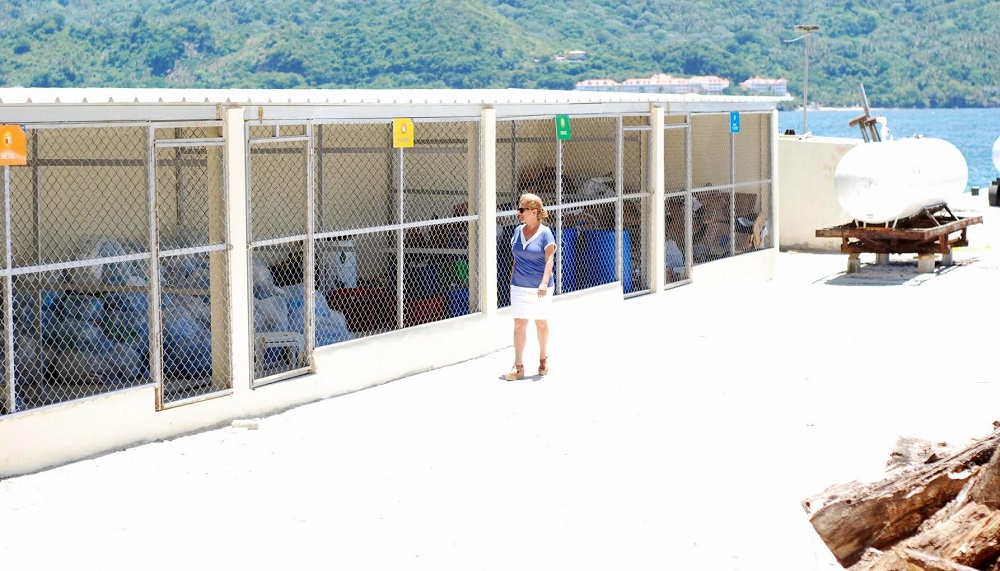
Your advice to hoteliers eager to implement sustainability practices? How to get started?
Make sure top management is committed. The successful implementation of good practices linked to sustainability depends on it. Also, involve all the people who work in the hotel, and seek dialogue with your stakeholders and relevant interest groups.
How to start: Define the strategic lines of sustainability and establish objectives for each of those strategies or commitments. It is very important to introduce the project to all employees in order to raise awareness and ensure their involvement.
Thank you, Antonia.
Learn more about Grupo Piñero here.
![]() This interview was facilitated by Travelife for Hotels and Accommodations, the sustainability management scheme used by Grupo Piñero to measure sustainability performance. See all interviews powered by Travelife here.
This interview was facilitated by Travelife for Hotels and Accommodations, the sustainability management scheme used by Grupo Piñero to measure sustainability performance. See all interviews powered by Travelife here.
Enjoyed our interview with Antonia del Toro about sustainability at Grupo Piñero in Spain? Share and spread the word!

